Encapsulated

Q&A with Dr. Yin
How to Write a Thank You Note
Internship Postings
2023 – 2024 Updates




Q&A with Dr. Yin
How to Write a Thank You Note
Internship Postings
2023 – 2024 Updates





Encapsulated is an independent, student-run organization committed to providing industry-related resources, knowledge, and connections for students. We are dedicated to bridging the gap between students and the pharmaceutical industry and creating opportunities for internships and fellowships alike. We hope to encapsulate the field into an easily accessible and digestible format.
Issue 4
Published April 2024

Contributers
Writers
James Sagun
Kristina Rodrigues
Eli Carbo Ontiveros
Kim Nguyen
Joseph Havens
Editors
Phuong Do
Gabrielle Castro
Graphic Designers
Ange Lu
Tiffany Suriadinata
Tori Chou
Minh Nguyen









 Gabrielle Castro
Gabrielle Castro
I am a second-year pharmacy student at the University of Texas at Austin College of Pharmacy. I earned my Bachelor’s in Biological Chemistry at the University of Texas at Arlington.
I love exploring diverse cultures through food and supporting local farmers’ markets. I’m passionate about bridging cultural divides and promoting health literacy through medical writing and patient education. I hope to use my linguistic skills to empower individuals to take control of their health.
My interests lie in medical affairs and regulatory affairs. I aim to use my skills to make a positive impact on people’s lives by educating for safe and innovative medicines. I hope to inspire future pharmacists and be a resource for others.

I also go by Elle. I am a first-year pharmacy student at the University of Texas at Austin College of Pharmacy and received my Bachelor’s in Biochemistry at UT Dallas. I am also working on a Masters in Bioinformatics at UT Health.
I enjoy staying active and trying new things in my free time. You can usually find me at the gym or picnicking outside. I love to explore new places – last summer I solobackpacked in Europe.
I am interested in Clinical Development as I have experience in research and am intrigued by the drug development process.

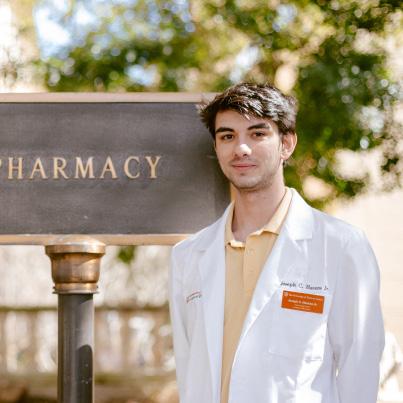
I am a first-year pharmacy student at the University of Texas at Austin College of Pharmacy. I completed my Bachelors of General Business at the University of St. Thomas and my Masters of Biomedical Sciences at the University of the Incarnate Word School of Osteopathic Medicine.
Through my research experience, love for connecting people, and desire to advocate for the well-being of patients, I want to pursue a career in medical affairs as a Medical Science Liaison.
I love reading and trying new foods, whether I’m going to new places or making it myself (I’m more of a baker than a cook). I am a huge plant mom.
I am currently in my second year at the University of Texas at Austin College of Pharmacy. I earned my bachelor’s degree from the University of Virginia with a double major in biology and chemistry.
I love watching sports and spending time outdoors. I enjoy skiing, surfing, wakeboarding, running, and playing sand volleyball with my friends!
I enjoy the lifelong learning and teaching opportunities available, especially in the Medical Affairs area of industry. The impact they have on patients and healthcare professionals is rewarding to me.
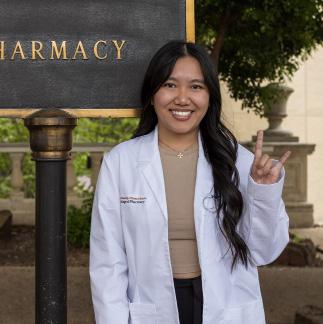


I am a first-year pharmacy student at the University of Texas at Austin College of Pharmacy, where I also received my Bachelor in Biochemistry and Economics.
My research experience and undergraduate background piqued my interest in data analysis and science applications. Therefore, I’m interested in working in clinical development, pharmacometrics, or HEOR roles, where I can contribute to advancing healthcare through informed decisionmaking and data-driven insights.
During my free time, I love spending time taking photos and painting. I also enjoy traveling around the world to discover new things.

I am a third-year PharmD candidate at the University of Texas at Austin College of Pharmacy and completed my Bachelor’s of Science in Biochemistry at the University of Texas at Dallas.
I joined UT Austin’s local IPhO chapter because I wanted to make an impact on patient care and found myself drawn to regulatory affairs. I am also interested in clinical operations, medication therapy management, and health informatics.
In my free time, I produce music covers and originals, try new foods, and play puzzles with friends.

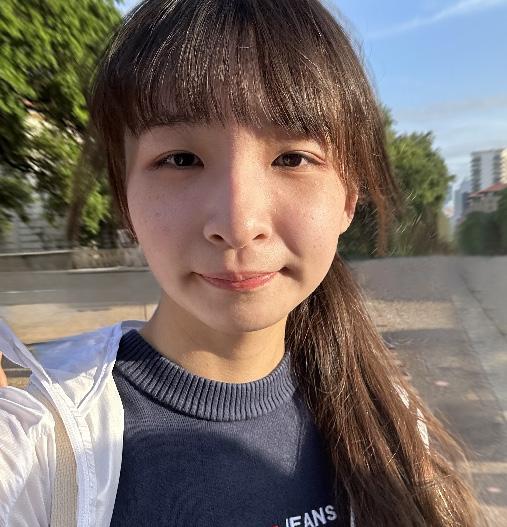 Tori Chou
Tori Chou

Hi! I am Tori, and I am a first year student at University of Texas at Austin College of Pharmacy. I came from Taiwan and it is currently my 5th year in the United States!
I am a game developer / graphic designer that does UI/UX designs and branding visuals for 2 games from JEDF Games, I also design tons of other things including newsletter and event materials! (I make pharmacy animal stickers here every semester :D)
I plan on being part of the innovative healthcare developers in the future and I want to start my own company upon the completion of my Pharm.D!



On April 5th, 2024, the FDA approved Enhertu® (fam-trastuzumab deruxtecan-nxki) for metastatic HER2-positive solid tumors, its 5th indication. This is the first HER2-directed medicine to receive a tumoragnostic indication.
April 5th, 2024


On November 8th, 2023, the FDA approved Zepbound® (tirzepatide) for chronic weight management in patients with obesity. Direct-to-consumer advertising may have played a role in creating a different brand name than Mounjaro (tirzepatide), indicated for glycemic control in Type 2 Diabetes
November 8th, 2023

On April 4th, 2024, the FDA approved Abecma® (idecabtagene vicleucel; ide-cel) for relapsed or refractory multiple myeloma, after 2 or more prior lines of therapy.


April 4th, 2024
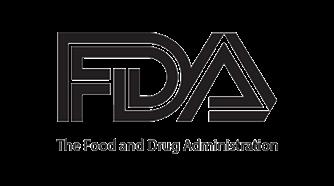
In 2023, the FDA approved 61 drugs, the highest number of new drugs in history. This includes 38 small molecule, 17 large molecule, and 6 cell and gene therapies.






Dear Hiring Manager / Interviewer Name,
Thank you for taking the time to interview me for this position. It was a pleasure to meet you, and I enjoyed talking to you about... Expand more!
Show that you listened! Pick moments that you loved from the conversation and mention them here. Be genuine and show your honest appreciation for their time.
Let them know about any specific skills, ideas, or qualities you have that can benefit the company, but keep it short! A thank-you letter (card or email) should only be long enough to fit on a standard notecard.

Sincerely,



A team of scientific and medical experts, such as MSLs, that cultivates relationships with Key Opinion Leaders (KOLs) to generate medical insights. These insights are utilized by the organization to enhance education, decision-making, or research activities. Additionally, field medical professionals contribute to communication materials and respond to inquiries from the healthcare field in a non-promotional manner, focusing on patient care decisions.

A professional with academic and scientific expertise in specific therapeutic areas and disease states. MSLs play a vital role in establishing and maintaining long-term connections with Key Opinion Leaders (KOLs) in the healthcare industry to ensure scientific understanding of new medicines.

Experts with proven and recognized experience in a particular field, such as disease states, product development, or patient preferences. These experts often include physicians, researchers, patient advocacy leaders, and other health executives who are able to influence the healthcare landscape through their insights and knowledge.

Medical Insights, often generated by Medical Affairs activities, refer to new understandings or perspectives on relevant healthcare subjects. These insights enable companies to identify unmet needs and formulate strategies that guide appropriate actions.


Advisory board of external experts provides their professional guidance on therapeutics and specific topics to the company for further insights and success of a product or tackling healthcare challenges.

Off-label refers to the use of a medical product for purposes not approved by the FDA. Despite lacking official approval, such uses may still demonstrate clinical benefits based on academic and/or clinical studies.



An event where leading professionals attend to stay up to date on best practices, latest trends, and techniques, while also networking with peers and enhancing their skills through educational sessions.


The development of a strategic plan for attending and participating in medical congresses and conferences to maximize scientific exchange and visibility for the company’s products.

Medical Strategy leaders possess medical and scientific backgrounds, along with organizational experience, combined with additional leadership or business training. They support the production, commercialization, launch, and lifecycle management of products, representing the value of Medical Affairs.

After clinical trials are completed, commercialization is the final step of drug development where strategies are employed to bring a successful product into the market.

Medical Information is a team of experts in drugs, devices, or diagnostics within pharmaceutical companies. They play a responsive role by developing appropriate responses to anticipated or actual questions from healthcare providers. Furthermore, they identify knowledge gaps if the answers provided are not current.

Real-world evidence is clinical evidence derived from the analysis of realworld data, which provides insights into the functionality of a medical product. This evidence considers both the benefits and risks associated with the product.




Originating from the commercial side of the business, Medical Affairs has gained autonomy and developed more defined roles. In this functional area, the focus lies on communications between the company and other medical professionals, healthcare providers, and patients. Through disseminating scientific and clinical information to the medical community and gathering data for the company, Medical Affairs ensures that this data guides the direction of various departments, from sales and marketing to portfolio planning.
The Medical Science Liaison (MSL) role is for those with advanced scientific training who work within pharmaceuticals, biotechnology, medical device, contract research organization, or other healthcare industries. They typically focus on a specific therapeutic area (e.g. Oncology, Cardiology, Neurology, Hematology, etc.) and work through a product’s lifestyle to ensure its effective utilization as a scientific resource within the medical community. The main roles of MSLs are to engage external stakeholders, collaborate with internal stakeholders, and maintain

scientific expertise. These engagements focus on Key Opinion Leaders (KOLs) and other Healthcare Professionals (HCPs), which involve various activities such as identifying clinical information, communicating medical and scientific data, attending medical conferences, and supporting advisory boards.
Although a broad term, Home Office Medical typically focuses on medical strategy, evidence generation, and insights, contributing to the support of product development, launch, and lifecycle management. With crossfunctional collaboration and evidencebased decision making, these areas ensure that shareholders receive
trustworthy information through expert input into study design and identification of new projects. Those working in Home Office Medical do this through evidence generation by overseeing scientific studies that are important in enriching the understanding of product safety and effectiveness. Evidence generation teams oversee many studies such as real-world evidence studies, health economics and outcomes research, and investigatorsponsored studies. The combination of insights generated by Home Office Medical ensures that the clinical development plan or strategy remains robust.
The Medical Information team serves


as the backbone of the Medical Affairs functional area, providing crossfunctional support and taking a central role in communication strategies that are integrated throughout all levels of a company. These teams are responsible for answering incoming and expected inquiries regarding marketed products and are a source of information to various stakeholders. When contacted, these experts gather, develop, and provide responses regarding product safety, efficacy, risk versus benefits, and any other concerns. They support Medical Affairs departments by setting up strategic communication plans, publishing new data, engaging KOLs, and aligning internal communications.
Medical Writing plays a vital role in the drug development cycle by detailing, documenting, and sharing research and news essential for print or digital documents. Medical Writers promote quality assurance by correcting grammar, copywriting, ensuring that all contents comply with guidelines and regulatory standards. They may also contribute to the development of various applications for mobile devices used in disease management, continuing education, and training. Their contributions can be found through many venues such as abstracts,
advertisements, grant proposals, health care policies, and regulatory documents.
The Medical Affairs team ensures a linkage between internal Research & Development and Commercial/Marketing efforts, proactively condensing and relaying pertinent medical and clinical information. This involves communicating relevant scientific and clinical information for internal teams through drug discovery, development, and regulatory approval phases. Medical Affairs also ensures full regulatory requirements during clinical trials to achieve market authorization of innovative medicines.
Medical Affairs is responsible for communicating relevant scientific and clinical information for internal teams through the entire process of drug discovery, development, and regulatory approval. This involves working closely with Regulatory Affairs in the preapproval phase to ensure patient access to novel medicines by writing clinical dossiers for Health Technology Assessment (HTA) and regulatory body approval. Medical Affairs departments also ensure full regulatory requirements during clinical trials are accomplished to achieve market authorization of innovative medicines. Throughout the pre-approval phase the team disseminates deliverables that outline the clinical landscape and standard of

care mapping, translate external insights for internal management, and provide evidence gap analyses to assist with the planning and execution of projects for the communication of medical evidence with external stakeholders.
As the industry continues to evolve, several key trends are shaping the future of Medical Affairs and its roles and responsibilities.
Medical Affairs is also responsible for the communication between Healthcare Professionals and internal teams once a drug product is approved for market. Team members, mainly MSL’s, engage external stakeholders in noninterventional studies concerning a drug product’s efficacy and dissemination into clinical practice guidelines. They also act as the primary contact for clinical investigators interested in initiating an investigator-sponsored clinical trial within their therapeutic area. Medical Affairs departments also establish and maintain patient access to novel medicines via liaison work with national payer entities such as Medicare services and insurance providers. Additionally, Medical Affairs disseminates scientific and clinical content via diverse channels, virtually and physically, and with tools preferred by individual Health Care Providers to ensure adequate reception. In the reverse direction, observations are obtained and presented to internal stakeholders in order to influence decision making on strategic planning and marketing execution.

Real-world evidence (RWE) and digital technologies are causing a paradigm shift within the pharmaceutical industry, with Medical Affairs professionals playing a more integral part in establishing and maintaining collaborative relationships with key stakeholders. Various clinical setting data generate real-world data (RWD) to observe epidemiology, disease burden, treatment outcomes, patient-reported outcomes, and other valuable insights into the economic

aspects of a drug. As RWE impacts healthcare decisions across multiple systems, professionals and stakeholders alike will need to implement various risk management processes to ensure that several functions, like Medical Strategy, are able to pool all the insights and outcomes from these large data ecosystems.
As of recent, various companies are also recognizing the value of establishing collaborative relationships with a growing category of opinion leaders: digital opinion leaders (DOLs). These DOLs have growing followers consisting of medical professionals, patient advocacy groups, and other key stakeholders. In some cases, these DOLs are also clinical experts who embrace social media as platforms for medical education, data sharing, and outreach within the medical community. Some advantages that DOLs have over traditional KOLs include leveraging analytical tools to measure their engagement metrics, which can allow companies to maintain real-time awareness of the latest patient/ provider perspectives and incorporating the voice of the patient in medical strategy. Engaging these DOLs can allow companies to meet patients ‘where there are’ in places they often frequent virtually.
In the future, a global-local approach to stakeholder engagement is anticipated, requiring a robust central field medical excellence function supported by Global Medical Affairs. These functions are crucial
for the identification and development of content to ensure seamless local execution of this strategy. This includes establishing a comprehensive customer insight-generation process, which can capture nuanced data from Medical Affairs interactions and other sources to shape and strengthen customer relationships. Recognizing the evolving nature of stakeholder engagement and the impact of field medical activities on patient health will transform the deployment of medical affairs teams. The emphasis here is on providing physicians with tools to optimize patients’ health outcomes.
Additionally, the integration of digital therapeutics presents both challenges and opportunities with the combination of connected devices, drugs, and data. While offering potential enhanced efficacy, there is more stress on the management of dosing, frequency, monitoring, and side effects. Navigating these advancements is critical for seamless integration into the evolving stakeholder engagement landscape.



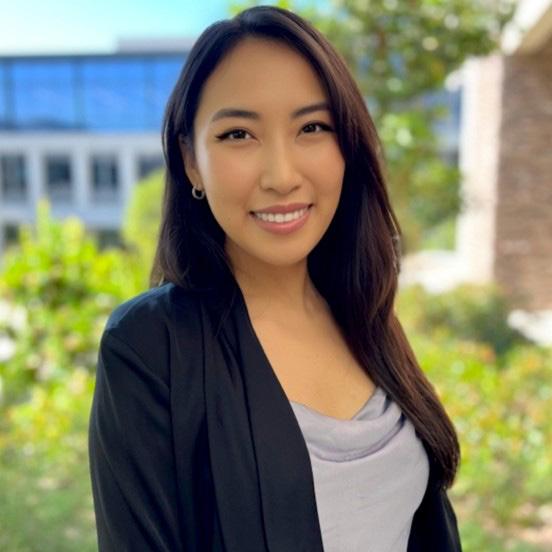
Dr. Stephanie Yin is a Senior Medical Science Liaison (MSL) at Neurocrine Biosciences within the Neuropsychiatry Department. She has successfully led medical strategy and execution, peer-to-peer key opinion leader engagement, and medical content creation for field-based teams in both pre- and post-launch of products within the therapeutic areas of Alzheimer’s Disease, Amyotrophic Lateral Sclerosis, Multiple Sclerosis, and more. She also has experiences as an MSL at AbbVie within their Dermatology Department and at Biogen in their Neurology Department.
She is an alumna of The University of Texas at Austin, where she completed a Bachelor’s in Human Development and Family Science and also her Doctor of Pharmacy. Upon graduating, she completed a Postdoctoral Fellowship in Global Medical Affairs at Biogen in conjunction with Massachusetts College of Pharmacy and Health Sciences where her main focus was Alzheimer’s Disease and other Neurological diseases.




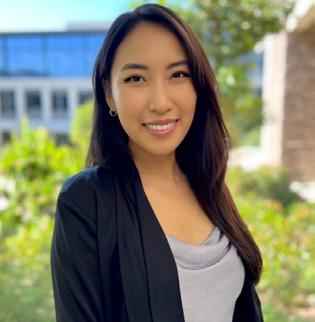 Dr. Stephanie Yin
Dr. Stephanie Yin

What inspired you to pursue industry, specifically the MSL role?

I first learned about the MSL role during my P4 rotations at MD Anderson. I had a preceptor who had friends in oncology that were recruited by Pfizer, and I wanted to meet with them to hear about their experiences. When I attended UTCOP, we did not have any resources or alumni that were well-versed in industry, so I had to establish those connections myself.

After speaking with my preceptor’s friends, I liked what they shared about utilizing their pharmacy training as drug experts to collaborate with physicians. The MSL role is unique because it’s kind of like being a traveling consultant pharmacist where I am meeting with providers but am still able to impact patients through an educational aspect.

When looking for fellowships, how did you narrow down what disease state you wanted to work with?

I already had an idea of what I wanted to do. I was interested in psychiatry and oncology, so I selected MD Anderson the Veteran Affairs for my rotations. I applied to multiple fellowships and specifically went to Biogen for their neuroscience expertise. This kick-started my career in the neuroscience field, and I found that I really enjoyed working with psychiatry, the brain, and cognition.




I noticed that you created an Instagram account to highlight your pharmaceutical career. Can you tell me more about what inspired you to create one?

I wanted to be a resource for people because I didn’t have a person like that for me when I was in pharmacy school. I want to be a person to reach out to learn more about the different roles in the pharmaceutical industry.

We saw that you have opportunities to work in Europe for a couple months as a MSL. Can you share with us more about this experience?

I had a great opportunity to work in Europe focusing on multiple sclerosis and spinal muscular atrophy. Representing the headquarters overseas, I engaged with healthcare professionals and key opinion leaders, gaining valuable insights into the European market. This experience broadened my professional horizons, emphasizing the need to tailor strategies to diverse regional needs.

As a founding member of IPhO at UTCOP, what was your experience like?

At the commencement of IPhO, I was a dedicated P4 student collaborating closely with my peers. However, a special acknowledgment goes to the proactive P1 and P2 individuals who supported the majority of the efforts. Reflecting on the remarkable growth of IPhO at UTCOP, I take great pride in the contributions of every individual from its inception to the present.

What is the biggest accomplishment that you’re most proud of? What legacy do you want to leave behind?


Embarking on the fellowship journey marked a significant accomplishment, particularly as my transition from UT lacked the exposure to industry and pharmaceutical Advanced Pharmacy Practice Experiences (APPE) at that time. Despite the absence of these experiences, leveraging my background with Mary Kay during interviews proved beneficial, though not comparable to experiences at other companies.



Dedication and hard work throughout the fellowship eventually led to a pivotal opportunity – being entrusted to work with the EU medical director at the Switzerland office. During this period, I took charge of orchestrating two Key Opinion Leader (KOL) events focused on multiple sclerosis and spinal muscular atrophy. The company’s confidence in my abilities extended further, granting me the responsibility to represent the headquarters overseas and facilitate these impactful events in the European market.

As I navigated this journey, I learned that the U.S. perspective is not the world; there were struggles at the global level. Initially, my focus was on the domestic front, discussing strategy and pipelines without considering Europe, Asia, or South America. It was a realization that prompted me to think about the diverse markets, their unique needs, and the profound impact pharmaceutical endeavors can have on a global scale.
Given that the MSLs travel a lot, how do you approach balancing your personal life with professional travel?


With the caveat that each company and MSL covers different territories. depending on their therapeutic area, it really depends on how big your territory is. I currently have the largest territory I have ever covered across the three companies I have worked for, which is because I work with a lot of psychiatrists, and they participate in telehealth appointments. What helps is that my company is flexible, which gives me time to balance my personal life with professional travel. I would say it’s important to prioritize family time and mental health.


With time, you will learn to “turn off” when you need to, as well. When I have to travel for my job, I always schedule ahead of time and communicate with my family. Overall, I would say balancing your personal and professional life is possible if you schedule in advance, communicate well, and protect your own personal time.

 Stephanie Yin, PharmD, RPh
Stephanie Yin, PharmD, RPh


